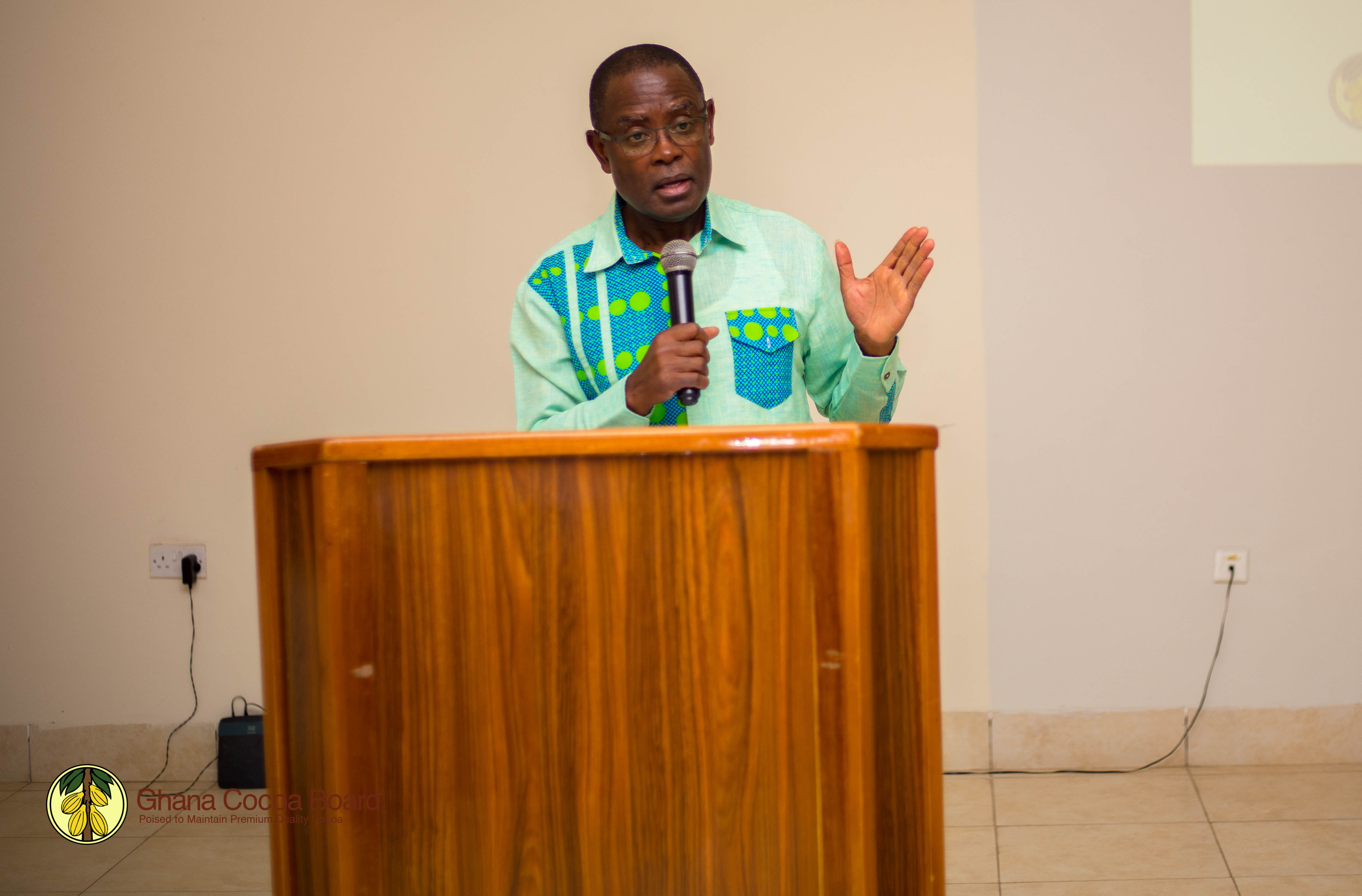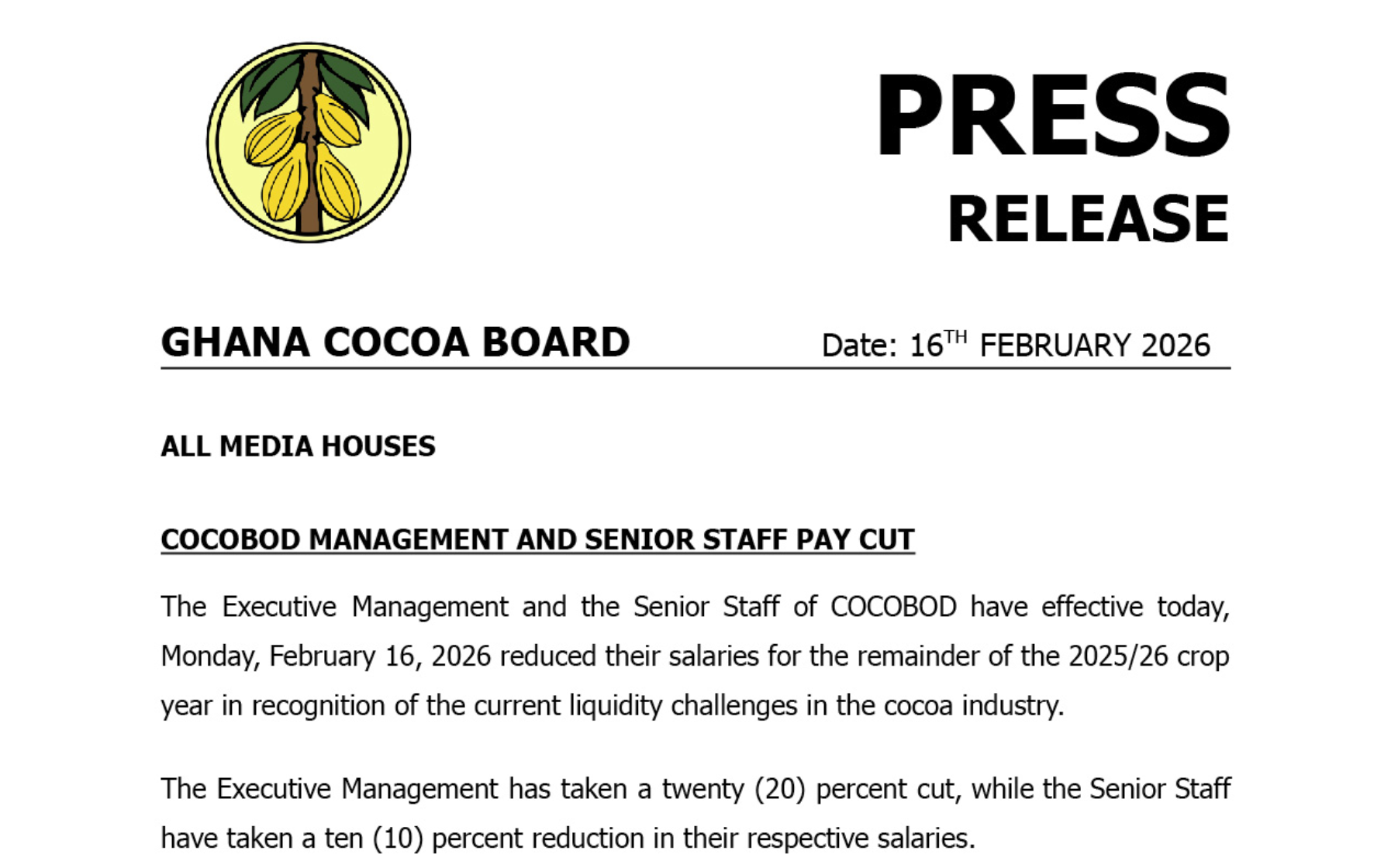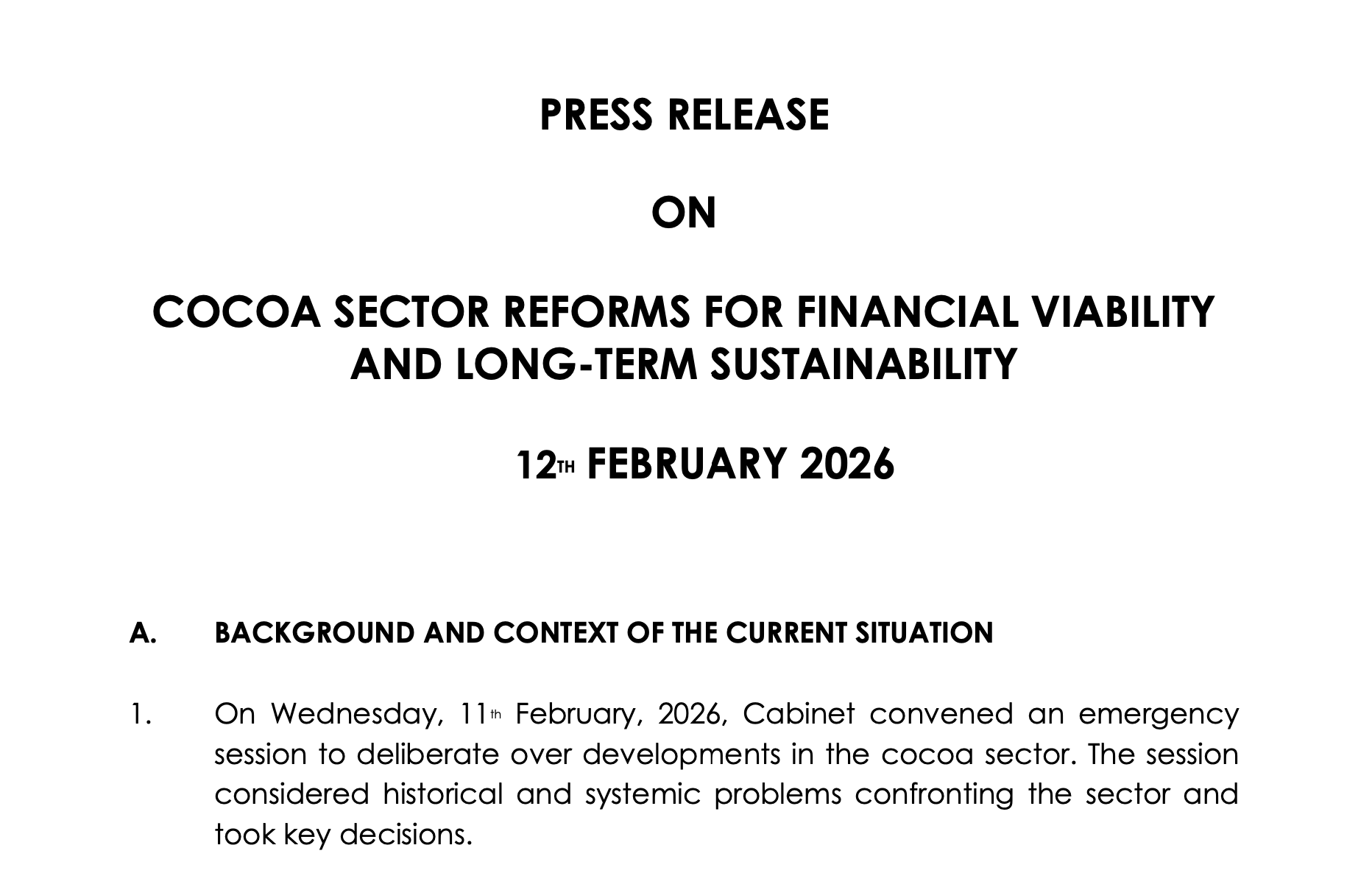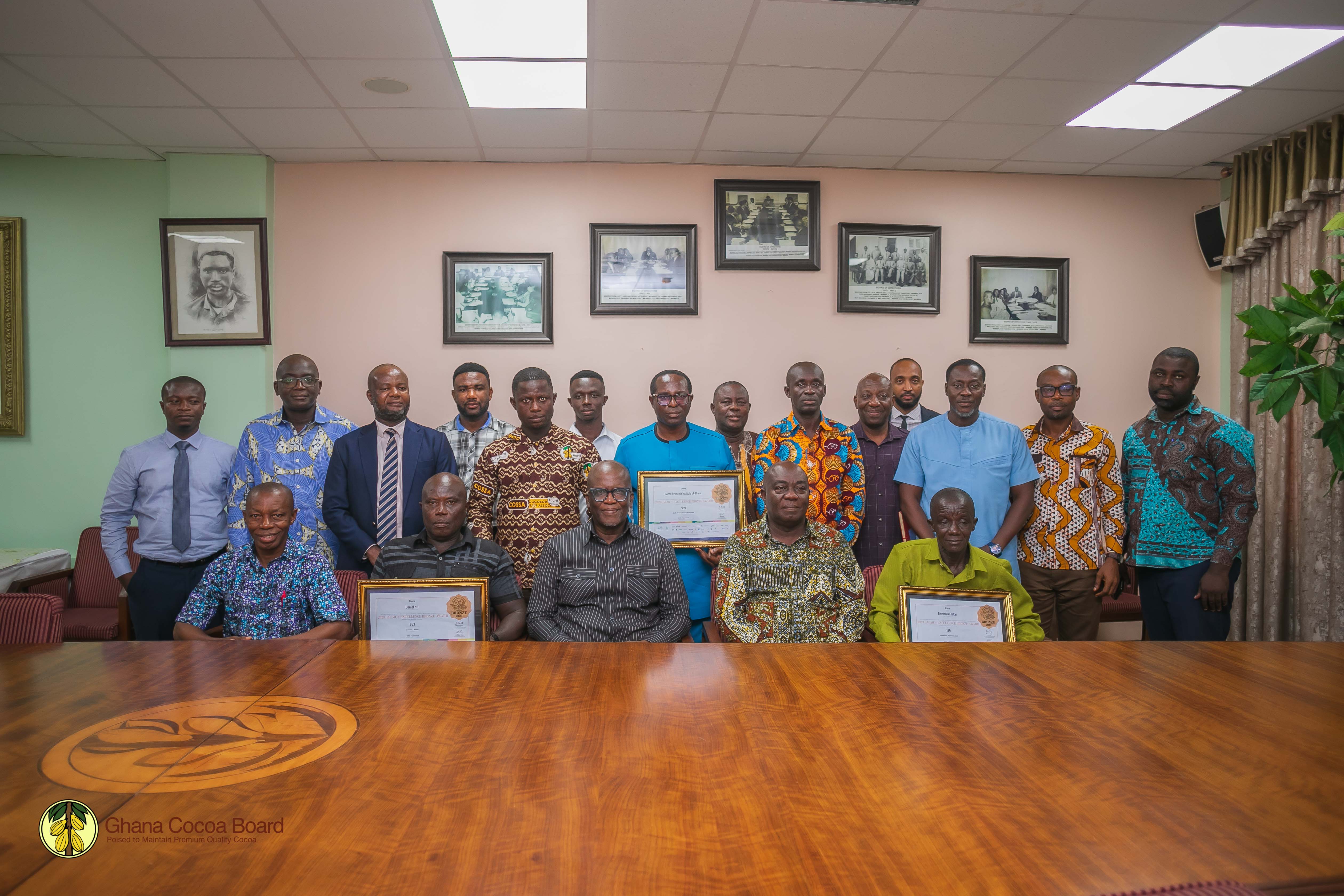COCOBOD, STAKEHOLDERS STRENGTHEN ANTI-CHILD LABOUR PROTOCOLS IN COCOA SECTOR

Date: 21st October 2024
Ghana Cocoa Board (COCOBOD), in conjunction with the German Agency for International Cooperation (GIZ) has organised a day’s workshop to deliberate on the Standard Operating Procedures (SOPs) of the Cocoa Sector Child Labour Monitoring System (CS-CLMS).
The workshop demonstrates yet again the commitment of the regulator of the cocoa industry to stem all forms of child labour and promote the sustainable production of cocoa.
The workshop, which was led by the Anti-Child Labour Desk of COCOBOD, aimed at refining the draft Standard Operating Procedures (SOPs) for the CS-CLMS.
Addressing participants made up of representatives from Licensed Buying Companies, Chocolatiers and CSOs in the cocoa value chain, the Deputy Chief Executive in charge of Operations, Dr Emmanuel Opoku reiterated COCOBOD’s role in the campaign against child labour in cocoa farms through the formulation of pragmatic policies.
Highlighting the urgent need for all stakeholders to put hands on deck in tackling the menace, Dr Opoku said all the necessary plans and policies aimed at protecting children and safeguarding the integrity of Ghana's cocoa have been firmed up.
The operationalization of the CS-CLMS is expected to complement the national agenda for the control of child labour contained in the Ghana Accelerated Action Plan Against Child Labour (GAAPACL), 2023-2027.
Dr. Opoku observed that, as the regulator of the industry, COCOBOD was particularly concerned about the negative tagging of the country’s cocoa with child labour. Hence, there is a need to partner with all stakeholders to achieve a sustainable cocoa future.
Against this backdrop, Dr. Opoku charged participants to use their expertise and insights to improve the draft document in order to ensure its robustness in addressing child labour-related issues.
“We are committed to working with stakeholders to address this menace. We acknowledge the significant efforts and accomplishments that have been made by the Government and stakeholders towards the attainment of this noble objective”, he observed.
The Deputy Chief Executive noted further that the SOPs will provide clear and practical guidelines to stakeholders, from local communities to the national level to ensure policy consistency, accountability, and effectiveness in a joint effort to prevent, identify, and address child labour issues in cocoa farming.
For her part, Claudia Maier of GIZ emphasized the need for concerted efforts by harmonizing all the policy documents to effectively remove the conditions that trigger child labour in cocoa-growing communities.
The Head of the Child Labour Desk at COCOBOD, Mr. Simon Crown, encouraged the participants to share their practical knowledge to develop the final draft of the document.
Participants were also taken through a detailed presentation on the Ghana Cocoa Traceability System (GCTS) and the European Union Deforestation Regulations (EUDR).
Other News / Articles you might be interested in.

COCOBOD MANAGEMENT AND SENIOR STAFF PAY CUT
The Executive Management and the Senior Staff of COCOBOD have, effective today, Monday, ...
Read More
PRESS RELEASE ON COCOA SECTOR REFORMS FOR FINANCIAL VIABILITY AND LONG-TERM SUSTAINABILITY
A. BACKGROUND AND CONTEXT OF THE CURRENT SITUATION 1. On Wednesday, 11th February, 2026, ...
Read More
COCOBOD HONOURS GHANAIAN COCOA FARMERS FOR EXCELLENCE AT INTERNATIONAL COCOA AWARDS
Management of Ghana Cocoa Board (COCOBOD) has honoured the winners of the 2023 International ...
Read More